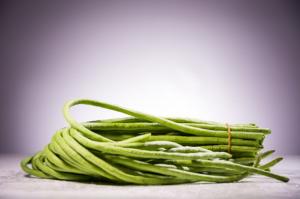Introduction
Tap water is the most common source of water used for indoor plants. It is convenient and easily accessible. However, the question remains – is tap water safe for indoor plants? In this article, we will discuss the advantages and disadvantages of using tap water for indoor plants.
Advantages of Tap Water for Indoor Plants
The biggest advantage of using tap water for indoor plants is that it is easily accessible. Most people have access to tap water and do not need to go out of their way to source water for their indoor plants. Additionally, tap water is generally inexpensive and does not require any additional cost.
Disadvantages of Tap Water for Indoor Plants
One of the biggest disadvantages of using tap water for indoor plants is that it may contain harmful chemicals. Tap water is treated with chemicals such as chlorine and fluoride, which are added to remove impurities and promote dental health. However, these chemicals can be harmful to indoor plants, which may absorb them through their roots.
In addition to harmful chemicals, tap water may also contain minerals and salts that can accumulate in the soil and affect the health of indoor plants. Over time, these minerals and salts can build up and cause problems such as yellowing leaves or stunted growth.
Alternatives to Tap Water for Indoor Plants
If tap water is not suitable for your indoor plants, there are several alternatives to consider. One popular alternative is rainwater, which is free from chemicals and minerals. Another option is distilled water, which is also free from impurities but may lack essential minerals that are beneficial for plant growth. Alternatively, you can use a water filtration system to remove harmful chemicals and minerals from tap water.
Tips for Using Tap Water for Indoor Plants
If you choose to use tap water for your indoor plants, there are some tips to keep in mind. First, allow tap water to sit for 24 hours before using it on your plants. This will allow any chlorine or fluoride to evaporate, reducing the risk of harm to your plants. Second, avoid overwatering your plants to prevent mineral and salt build-up in the soil. Finally, consider using a soil testing kit to monitor the pH levels and nutrient content of your soil.
Conclusion
In summary, tap water can be a convenient and accessible source of water for indoor plants. However, it may contain harmful chemicals and minerals that can affect plant health. If you choose to use tap water for your indoor plants, be sure to follow the tips outlined above and consider alternatives if necessary.

 how many times do yo...
how many times do yo... how many planted tre...
how many planted tre... how many pine trees ...
how many pine trees ... how many pecan trees...
how many pecan trees... how many plants comp...
how many plants comp... how many plants can ...
how many plants can ... how many plants and ...
how many plants and ... how many pepper plan...
how many pepper plan...































